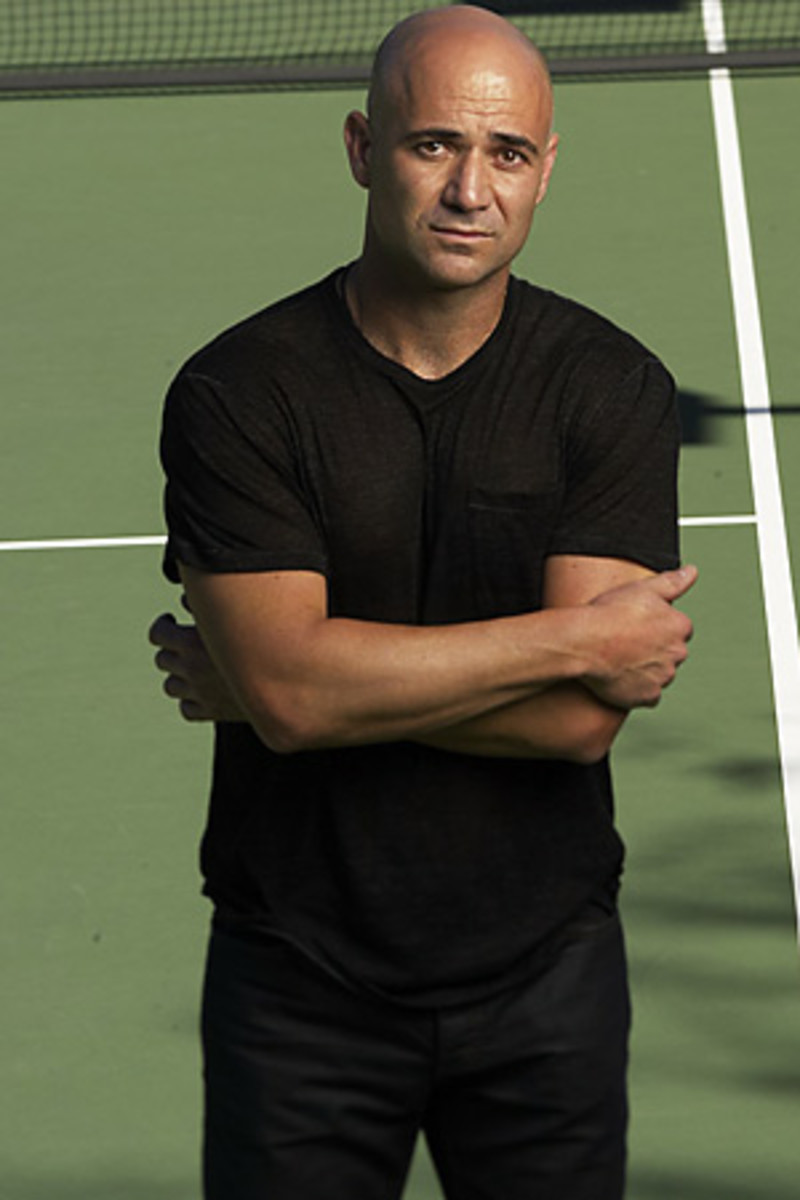
Agassi's autobiography more than just crystal meth admission
SI.com: How is this new book different from other athletes' autobiographies?
Jon Wertheim: You get accustomed to reading memoirs in which a player tells how tough it was grinding in the third round of Stuttgart or maybe rolls through a top-10 of career highlights. But this one reads like a novel. Andre clearly took this project seriously, using a sizable advance to hire Pulitzer Prize winner J.R. Moehringer to work with. He released his thoughts on everything from his relationship with his father to assessing contemporary players.
SI.com: Are many of the stories going to be lost due to the crystal meth use admission?
JW: Unfortunately, yes. The skins games with Jim Brown will hopefully be read as well, but there's no mistaking the headline here. I was surprised to read about the drug use. I can't help but think of the Major League Baseball testing leaks over the last few years when names were readily made available by sources. Agassi went the other way. He "outed" himself but incriminated the organizing body in the process. It's a pretty serious allegation and the dynamic is fascinating.
I spoke with Mark Miles, the ATP's CEO at the time, and it bears mention that the book seems to be a bit sloppy on the procedure. When a player tested positive, the issue was put before an independent panel, made up of former federal judges and the like -- not former players or ATP execs or anything like that. Inasmuch as Agassi was exonerated, it was by the panel not the ATP itself.
The drug testing and policy has since been revamped so that everything is handled by an independent WADA. Both practically and procedurally this makes sense. Still, the notion that "the ATP swept Agassi's positive test under the rug" is wrong-headed.
I'm curious to see the public reaction here. Yes, it was 12 years ago and the drugs were of the recreational variety, not the performance-enhancing variety. Still, Agassi didn't merely commit the crime; he then lied and acted manipulatively in the cover-up. On the other hand, I think for some it will add to his transformational tale.
SI.com: Pete Sampras released his own autobiography last year. How does it compare with Agassi's?
JW: Autobiographies are symptomatic of the people they are about. Pete was very straightforward whereas Andre was more textured in his explanations. Let's just say those happy photos of Pete hugging Andre were taken before Pete read the book. Andre lets it be known that Sampras was a bad tipper.
SI.com: Was there anything you expected to be in the book that was not?
JW: His split from Perry Rogers was missing. If you talk about crystal meth, one would think there would at least be some mention of a pretty dramatic split with your boyhood friend, longtime consigliere and the man to whom you entrusted all off-court aspects of your career.




